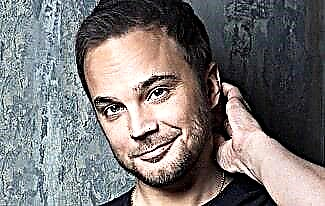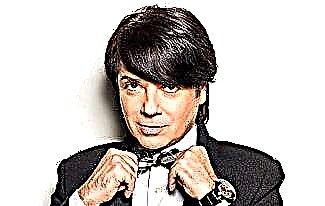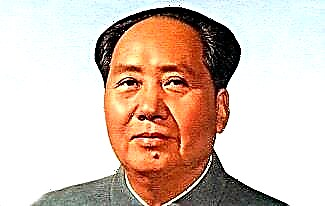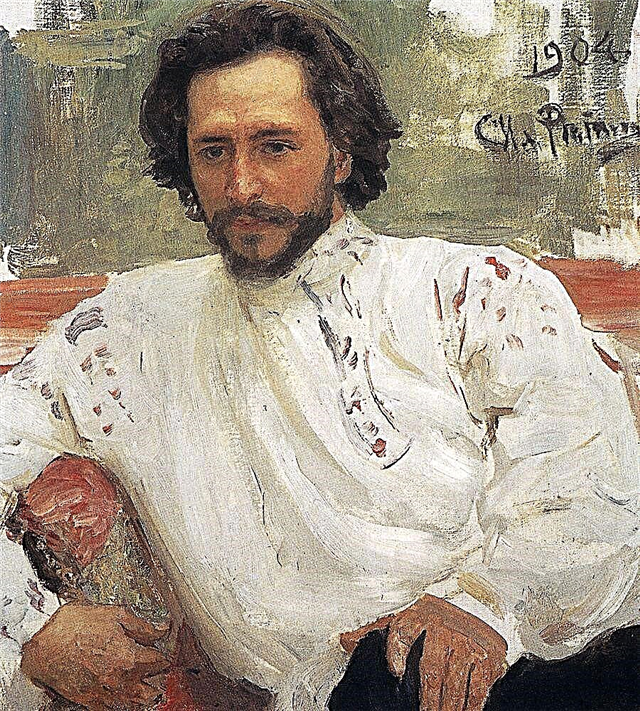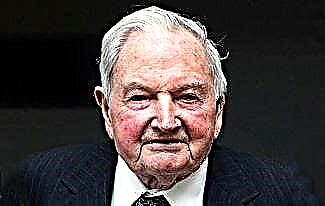The life of a man who, by his advanced years, should have been referred to as "the Most Serene Prince Golenishchev-Kutuzov-Smolensky" is a good illustration of the concept of "dedicating his life to serving the Fatherland." In military service, Mikhail Illarionovich Kutuzov spent 54 of the 65 years meted out by fate. Even in the few years of peace that fell to Russia in the 18th and 19th centuries, Kutuzov served as a military governor in the Russian provinces far from calm.

But one of the greatest Russian commanders did not deserve his fame through many years of continuous service. Starting from low ranks, Kutuzov showed himself as a competent, talented and courageous commander. He was distinguished by A.V.Suvorov, whose company Kutuzov commanded a company and P.A.Rumyantsev, whose future winner of Napoleon became a lieutenant colonel.
And the finest hour of Mikhail Illarionovich was the Patriotic War of 1812. Under the command of Kutuzov, the Russian army defeated Napoleon's army, assembled from almost all of Europe. The armed forces of the prototype of Nazi Germany were almost completely destroyed on the territory of Russia, and the Russian soldiers ended the war in Paris. Unfortunately, M. Kutuzov did not live to see the Parisian triumph. On a European campaign, he fell ill and died on April 16, 1813.
25 interesting facts (and some myths) about M.I.Kutuzov
1. The question is the date of birth of the future great commander. On his gravestone is carved "1745", but according to the preserved documents Kutuzov is two years younger. Most likely, the parents attributed the child to two years for the fastest promotion (in those years, the children of eminent nobles could be enlisted in the army from the moment of birth, and received new titles, according to “length of service).
2. It is believed that Mikhail was the only child in the family of Illarion and Anna Kutuzov. However, in one of his letters to his wife, Kutuzov casually mentions a trip to his brother, who, allegedly, was weak of reason.
3. Kutuzov's father was the author of the project of the canal that protected St. Petersburg from floods. After the project was successfully implemented (now it is the Griboyedov channel), Illarion Kutuzov received a snuffbox encrusted with diamonds as an award.

4. The parents gave their son an excellent home education. Kutuzov was fluent in French, German, English, Swedish and Turkish. Military bone - not a single likely enemy was bypassed.
5. At the age of 12, Mikhail began his studies at the Noble Artillery and Engineering School. His father also graduated from this educational institution. Illarion Kutuzov taught his son artillery and other sciences.
6. The successor of the Artillery noble and engineering school is the Military Space Academy. Mozhaisky. Born Mikhail Illarionovich two centuries later, he should be a rocket scientist or an astronaut. A century earlier, Mendeleev would have taught him chemistry, and Chernyshevsky would have taught Russian literature.
7. The first military rank of young Kutuzov is a conductor. By modern standards, roughly a warrant officer or midshipman.
8. After graduating from the Artillery School, most likely under the patronage of his parent, Kutuzov remained a teacher in it.
9. In 1761 - 1762, Kutuzov's career made an incomprehensible turn: first he went to work as the head of the chancellery of Prince Holstein-Beksky, but six months later he was sent to command a company in a regiment under the command of A. Suvorov.

10. Holstein-Beksky, where Kutuzov was in charge of the chancellery, rose to the rank of Field Marshal (Kutuzov had the same rank), not taking part in wars for 20 years.
11. Kutuzov received his first combat experience in Poland, where he commanded the prototype of the current special forces - small detachments that successfully beat the Polish rebels.
12. Kutuzov's talent was multifaceted. He not only commanded troops, but also worked in the legislative commission and successfully served as ambassador to Turkey. At that time it was one of the most difficult diplomatic posts.
13. A wound to the head, due to which Kutuzov wore an eye patch for the rest of his life, was received in 1774 in the Crimea near Alushta. The eye was preserved, but it looked ugly, and Kutuzov preferred to close it. It took two years for a complete cure.
14. 14 years after the first wound, Kutuzov received a similar second. And also in a battle with the Turks, also in the head and almost along the same trajectory as the first time.
15. In 1778, Kutuzov married Ekaterina Bibikova. The family had six children - a boy who died in infancy and five girls.
16. During a series of Russian-Turkish wars, Kutuzov rose to the rank of captain to lieutenant general.
17. Kutuzov practically saw off Catherine II and Paul I: he dined with both the Empress and the Emperor on the eve of their death.
18. Even 10 years before the Patriotic War, Kutuzov, by the highest order, lived in exile on his estate in Little Russia (now the Zhytomyr region of Ukraine).
19. The most difficult defeat in his career, Kutuzov suffered in 1805. At Austerlitz, he was forced to submit to the wishes of Alexander I and give battle. In it, the Russian-Austrian army, which had previously retreated more than 400 kilometers, was defeated by the French.

20. Bessarabia and Moldavia became part of Russia after Kutuzov in 1811 once again defeated the Turks.
21. The first victory of Kutuzov over Napoleon Bonaparte was recorded by the writer Anna de Stael, who noticed that the Russian general spoke French better than the French emperor. However, no wonder - Napoleon was not French, but a Corsican, and de Stael fiercely hated the emperor.
22. Before the Battle of Borodino, Kutuzov hoped for a miracle weapon - a balloon, which was collected near Moscow by the German Franz Leppich. The miracle weapon never took off, but the Russian soldiers under Kutuzov's command managed without him.
23. Kutuzov received his highest rank of Field Marshal General after Moscow was abandoned.
24. In December 1812, Kutuzov became the first Knight of St. George in the history of Russia.
25. M. Kutuzov was buried in the Kazan Cathedral in St. Petersburg together with the keys to the captured cities, taken by the troops under his command.





